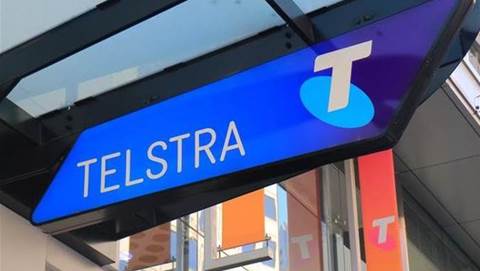Australian internet users are more likely to 'give up' if they encounter a blocked website while searching for content - and less likely to try to bypass the block - than in previous years.

The government yesterday published its fourth consumer survey of online copyright infringement. [pdf]
It’s the second year that the government has collected numbers on the efficacy of its site blocking legislation in changing consumer behaviour.
In 2018, 57 percent of people say they would ‘give up’ if confronted with a blocked website, compared to 49 percent a year ago.
In addition, only seven percent of respondents said they would try to bypass a blocked website, compared to 10 percent of respondents in 2017.
The researchers said that only 12 percent of internet users had actually reported encountering a blocked site.
This year, for the first time, the researchers disclosed how many users were actually successful in circumventing a court-ordered block, describing that particular cohort as "less than one percent".
The methods for circumvention were largely the same as last year - VPNs, proxy websites and so on.
Overall, the latest survey finds that - across music, movies, TV and video games - legal services continue to gain in popularity.
"When looking collectively at all four content types, there is a greater proportion of consumers that are 100 percent lawful in 2018 compared to previous years," the researchers said.
"This finding is consistent with the view that legal streaming services are increasingly being used by digital content consumers and having a positive impact on the reduction of, or need for, unlawful consumption."
That isn’t necessarily resulting in a boon for the industry as the amount of spend is actually in decline.
"The average consumer quarterly spend among those that are 100 percent lawful has declined across all four content types," the researchers said.
"This is a trend across the last three years for video games and movies and the last two years for music and TV programs."
The report provides conflicting perspectives on whether that slide can be stopped.
On one hand, the research suggests that content industries may be undercutting themselves by misreading consumer willingness to pay.
The researchers said there was a “significant decrease in the percentage of participants, all aged 12+ with internet access, that agreed with the statement [that] 'content that you download or access online should be cheaper than the equivalent purchased in physical format'.
In 2018, only 44 percent of respondents agreed that price differential was necessary compared to 73 percent last year.
On the flipside, when confronted with the statement, 'I think you should be able to download or access the content you want for free from the internet', 74 percent agreed in 2018, up from 41 percent in 2017.
Still, about the same amount of people - somewhere around four in ten - think the price of online content is set "about right".
The research also found the proportion of hardcore pirates is slightly up year-on-year. The researchers said there was an "increase in participants selecting ‘nothing would make me stop’ [infringing] - from four percent in 2015, 2016 and 2017 up to six percent in 2018."
The survey - in its fourth year - was set up by the government in the absence of an “authoritative local data on online copyright infringement”.
The researchers noted that collecting statistics in this field remained fraught.
"The only way to obtain truly accurate behavioural data is via monitoring online activities. However, the cost of doing this would be prohibitive, and there would be obvious representativeness issues (e.g. it is highly unlikely that anyone actively partaking in unlawful file–sharing would agree to have their online activities monitored)," they said.


















.png&h=141&w=208&c=1&s=1)

